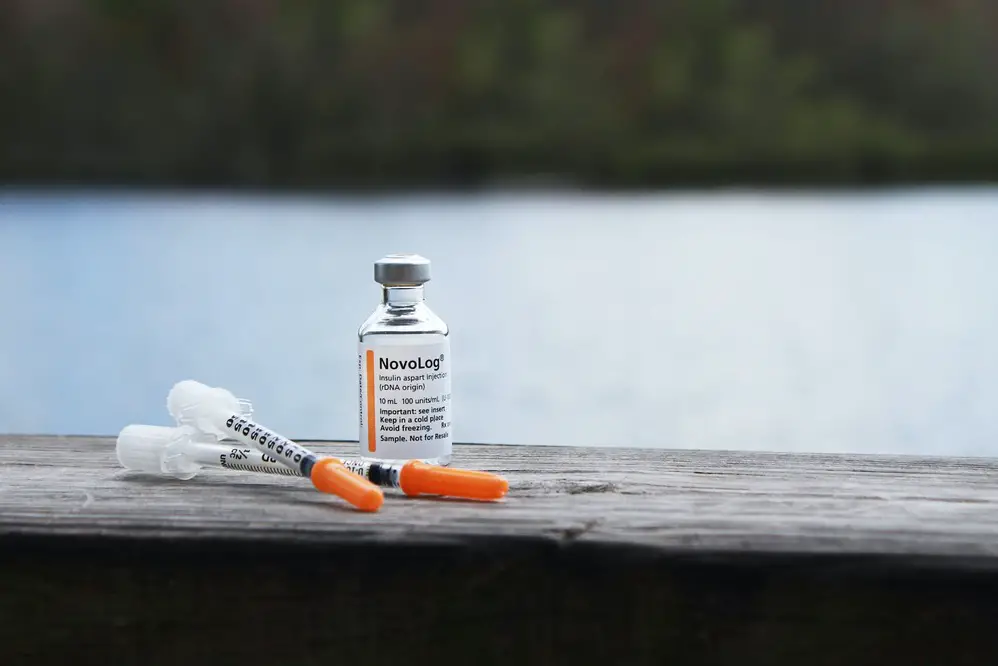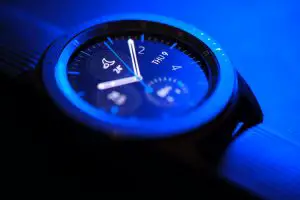Hiking with Gestational Diabetes: How-To Guide

I remember when my wife found out she was pregnant with our first child. We were so excited, and I was right there with her. We cried, then immediately started making all sorts of plans for the future.
We both love the outdoors and hiking, and frequently went hiking during her pregnancy. However, after her diagnosis of gestational diabetes, things sort of came to a screeching halt. What did it mean? What could she do? How was her life going to be changed, if at all? What would I need to do differently for her? And finally, could we still go on our hiking trips together?
I’m writing this article (with my awesome wife’s help) to answer those questions and give tips on how to go hiking with gestational diabetes. Please note: I am not a doctor, I am only speaking from our experience, what the OBGYN and diabetes specialist said, and from research I’ve done. If you have any concerns at all, you should ask your doctor before attempting anything I mention.
Quick Links
What Is Gestational Diabetes
First of all, what is gestational diabetes? It’s simply a type of diabetes that develops during pregnancy and usually goes away after the baby is born. However, it does increase your risk of developing type 2 diabetes later in life. According to the CDC, It affects between 2% to 10% of pregnancies each year.
Secondly, it’s important to understand that gestational diabetes is not the same as type 1 or type 2 diabetes. In gestational diabetes, the body still produces insulin, but for some reason, it’s not as effective at using it properly.
In most cases, gestational diabetes can be controlled through diet and exercise. However, in some cases, medication may be necessary.
What Are The Symptoms Of Gestational Diabetes
In most cases, gestational diabetes doesn’t have any symptoms. This is why getting tested for it during pregnancy is so important. The only way to know for sure if you have it is through a blood test, which is typically a routine part of prenatal care.
However, for moms, the scare of gestational diabetes is that it can lead to complications during pregnancy and delivery. The good news is that the risks are usually very low if it’s detected early and controlled.
So what are the risks? Well, uncontrolled blood sugar levels can lead to larger than normal babies (macrosomia). This can cause difficulties during delivery, such as a larger than normal baby weight, low blood sugar, and premature birth because the baby is too large for normal delivery.
So how does this all fit into hiking? Let’s figure it out.
How To Hike Safely With Gestational Diabetes
The good news is that you can still hike safely with gestational diabetes. In fact, hiking can be a great way to get some exercise and fresh air, both of which are important for controlling blood sugar levels.
Before you hit the trails, there are a few things you should keep in mind.
First, you’ll want to make sure that you have your blood sugar under control. For my wife, she was instructed to check her blood sugar four times per day: Before breakfast, before lunch, after lunch, and after dinner. Essentially before and after each meal and snack.
If your blood sugar is well controlled, you shouldn’t have any issues hiking. However, if your blood sugar is high, you may experience low energy levels, dizziness, or headaches. If this happens, it’s important to stop and rest until your blood sugar returns to a normal level.
Second, you’ll want to make sure that you’re drinking plenty of water. This is especially important in hot weather, but it’s important to stay hydrated even in cooler weather. Dehydration can cause all sorts of problems, including increased blood sugar levels.
Finally, you’ll want to make sure that you have a good meal before heading out on the trail. This will help to keep your energy levels up and prevent your blood sugar from dropping too low. Your diet might also need some modification – no more junk, no more processed foods, and more greens and healthy proteins and fats.
Should I Walk More with Gestational Diabetes?
The OBGYN that my wife saw said that she should try to walk 30 minutes a day, especially after eating (if possible). And while this is great advice, it’s not always possible (or necessary) to hike for 30 minutes a day.
In general, the more you can move around, the better. But even if you can only hike for 20 minutes or so, that’s still great! Any amount of exercise is going to help control your blood sugar levels.
Personal anecdote: my wife’s blood sugar levels significantly lower the following morning after going on an evening hike, even if it was only a 20-30 minute hike. So there definitely seemed to be some benefits to hiking or a light stroll, even if it’s just for a short period.
What Can You Not Do with Gestational Diabetes?
There are a few things that you’ll want to avoid doing if you have gestational diabetes.
First, you’ll want to avoid hiking in extremely hot weather. If it’s too hot, your body will have a harder time regulating its temperature, which can lead to problems.
Second, you’ll want to avoid hiking for long periods of time. If you hike for too long, your blood sugar may drop too low, which can cause dizziness, headaches, or even fainting.
And finally, you’ll want to avoid hiking up steep hills. If you hike up a steep hill, your heart rate will increase, and you may not be able to get enough oxygen, which can cause problems. Secondly, higher impact activities are no good when hiking while pregnant, especially in the third trimester. You want to avoid anything that may jar or jolt your body too much.
Essentially, you’ll want to stick to easy hiking trails with little elevation and keep it at around an hour per day. If you follow these tips, you should be able to hike safely with gestational diabetes.
Conclusion
Hiking and even walking can be great ways to get some exercise and fresh air, both of which are important for controlling blood sugar levels. While I hope this article was helpful, I am not a doctor, I am just speaking from our experience. Please be sure to check with your doctor before hiking if you have gestational diabetes, especially if you have any concerns.






